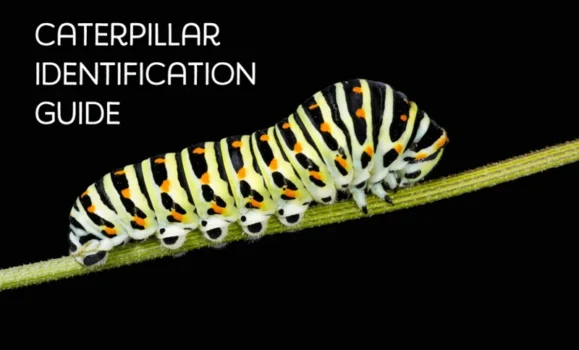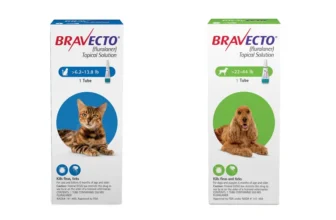Have you noticed a sudden change in your California Spangled’s behavior or health? As a loving pet owner, it’s essential to identify the root cause of any unusual behavior or health concerns your furry friend may exhibit. Parasites can be a major concern for cat owners, especially those who own California Spangled cats. Whether it’s internal or external parasites, they can cause serious harm to your pet’s health if left untreated. In this article, we will take a closer look at the different types of parasites that can harm your California Spangled and provide you with a guide to identification and prevention. So, let’s dive in and discover how to keep your feline friend safe and healthy.
Types of Parasites

It’s important to understand the different types of parasites that can pose a threat to your California Spangled cat’s health. Parasites are organisms that rely on a host to survive and reproduce. They come in two main forms: internal parasites and external parasites. Internal parasites are those that live inside your cat’s body, while external parasites live on the outside of your cat’s body. Understanding the types of parasites your cat may encounter can help you better protect them from harm. Let’s take a closer look at each type of parasite and the risks they may pose to your beloved feline. For more tips on parasite prevention, check out the importance of parasite prevention for California Spangled cats.
Internal Parasites
Internal parasites can wreak havoc on your California Spangled’s health. These parasites can live inside your feline’s body and cause a wide range of illnesses, including anemia, diarrhea, weight loss, and vomiting. Owners often don’t even realize that their pet is infected until the symptoms become severe. Here are some of the most common internal parasites that affect California Spangled cats:
- Roundworms: Roundworms are one of the most common internal parasites in cats. They can grow up to several inches long and can be identified in feces. Young cats are especially susceptible to these parasites as they can be passed down from mother cats to their offspring. Symptoms of roundworm infestation can include vomiting, diarrhea, and an engorged belly.
- Hookworms: Hookworms are tiny parasites that feed on your cat’s blood. They often live in your pet’s small intestine and can cause anemia and diarrhea. Hookworm larvae can also be found in contaminated soil, making outdoor cats much more vulnerable to infestations.
- Tapeworms: Tapeworms are long, flat worms that attach themselves to your cat’s intestinal lining. Infected cats often pass small segments of tapeworms in their feces that resemble grains of rice. These parasites can cause weight loss and a dull coat.
- Heartworms: Heartworms are spread through mosquito bites and can cause severe damage to your feline’s heart and lungs. The early symptoms of heartworm infestation in cats are often undetectable, and the parasite is often only discovered through routine heartworm tests.
It’s crucial to have your California Spangled tested for internal parasites regularly during routine veterinary checkups. Treatment for internal parasites depends on the type of parasite and its severity. Your veterinarian will prescribe specific medication to eliminate the parasite, but you can also use preventative measures to keep your cat safe, such as administering monthly heartworm preventatives and practicing good hygiene habits. It’s essential to keep your cat’s living space clean and free from feces and contaminated soil. By following appropriate preventive measures, you can help your California Spangled stay healthy and happy. Make sure to check out our article on parasite control for more tips and information.
External Parasites
External parasites are another type of dangerous parasites that can harm your California Spangled. These parasites live and feed on the outside of your cat’s body. They can be found in the form of fleas, ticks, mites, and lice. These parasites can cause several harmful effects on your cat’s health, such as skin irritation, hair loss, and even the transmission of diseases.
Fleas: These are the most common external parasites found in cats. They are small in size, and they feed on your cat’s blood. Fleas can cause intense itching, skin irritation, and even lead to anemia if left untreated. They reproduce rapidly, and it’s important to get rid of them as soon as possible. You can use flea and tick control products that are available in the market or natural remedies for parasite control for your California Spangled. You can also keep your cat’s living space clean to prevent flea infestations.
Ticks: These are usually found in tall grass or wooded areas and can easily attach themselves to your cat’s fur and skin. Ticks are known to transmit various diseases such as Lyme disease and Rocky Mountain spotted fever. It’s important to check your cat’s skin after they’ve been outside and remove any ticks that you find. You can also use flea and tick control products, which provide effective protection against ticks as well.
Mites: There are several different types of mites that can affect your cat’s health, such as ear mites, sarcoptic mange mites, and cheyletiella mites. Ear mites live in your cat’s ears and can cause symptoms like itching, shaking their head, and discharge from the ears. Sarcoptic mange mites burrow into your cat’s skin, causing hair loss, redness, and intense itching. Cheyletiella mites are also known as walking dandruff and can cause intense itching and scaling on your cat’s skin. Always speak to your veterinarian for specific treatment recommendations.
Lice: Lice are not as common in cats as they are in other animals, but they can still affect your cat’s health. They feed on your cat’s blood, causing skin irritation, intense itching, and hair loss. You can use flea and tick control products to prevent lice infestations.
It’s important to regularly check your California Spangled for external parasites and seek treatment immediately if you suspect an infestation. Additionally, make sure to keep your home clean and reduce the risk of parasites by using preventative medication like heartworm prevention for your California Spangled and cleaning their living space.
Signs of Parasite Infestation

Parasite infestations in cats can lead to a wide range of symptoms and health issues, including dull coat, weight loss, and diarrhea. Common external parasites include fleas and ticks, while internal parasites include heartworms, roundworms, and tapeworms.
Fleas are one of the most common parasites that affect cats. You may notice your California Spangled scratching more than usual, and you may see fleas or flea dirt (small black bits that resemble pepper flakes) on their coat. If your cat is allergic to flea bites, they may develop a condition called flea allergy dermatitis which can cause them to lose hair and develop a rash.
Ticks are another external parasite that can affect your California Spangled. Ticks are typically found in wooded areas or tall grass, and can attach themselves to your cat’s skin when they brush against them. You may find ticks on your cat’s skin, particularly in areas such as the head, neck, and ears.
Heartworms are a serious type of internal parasite that can have deadly consequences. These parasites are transmitted through mosquito bites, and can cause damage to the heart, lungs, and other organs. Symptoms of heartworm infestation can include coughing, weakness, and difficulty breathing.
Roundworms and tapeworms are other types of internal parasites that can have adverse effects on your California Spangled’s health. Roundworms can cause vomiting and diarrhea, while tapeworms can cause weight loss and itching around the anus.
If you notice any of these symptoms or suspect that your California Spangled may have a parasite infestation, it’s important to take them to the veterinarian right away. By addressing the issue early on, you can help ensure that your cat remains healthy and happy.
To learn more about how to prevent and treat parasitic infestations in your California Spangled, check out our article on flea and tick control. If you’re interested in natural remedies for parasite control, our article on natural remedies may be of interest to you. You can also learn more about how to prevent parasites in your home by checking out our article on parasites at home. Finally, to learn more about preventing heartworm infestation, take a look at our guide on heartworm prevention.
Prevention and Treatment
When it comes to your California Spangled’s health, prevention and treatment are crucial. Whether your furry friend has already experienced a parasite infestation or you want to ensure they never do, taking preventative measures is key. There are various ways to keep your cat healthy and parasite-free, from regular vet checkups to administering preventative medication. Let’s take a closer look at some of the most effective prevention and treatment methods.
Regular Vet Checkups
It is crucial to take your California Spangled for regular checkups to the vet to help identify any signs of parasitic infestation and nip it in the bud. During these checkups, the vet can perform a physical examination and run tests to detect internal parasites that may be hiding inside your cat’s body. Strong preventative measures can be taken if any parasites are found.
Here are some benefits of regular vet checkups:
- Early detection of internal parasites can help prevent their spread and minimize the damage they cause. This will help keep your California Spangled healthy and happy for a long time.
- The vet can teach you how to identify signs of parasitic infestation and take necessary measures to prevent them.
- The vet can prescribe the appropriate medication and follow up to ensure that the treatment plan is working effectively.
- You can get advice on dietary and lifestyle changes to improve your cat’s overall health.
- Finally, regular checkups with the vet can help you forge a strong relationship with them and establish trust in your cat’s healthcare team.
Even if your California Spangled appears healthy, scheduling a checkup at least once a year is a wise decision. Any signs of internal parasites will be detected early on so that relevant treatment and medication can be given. Scheduling regular checkups with your vet is a crucial step in ensuring your cat’s health and happiness.
Administering Preventative Medication
One highly effective way to prevent parasites from harming your beloved California Spangled is by administering preventative medication. Your vet can recommend the best medication for your cat based on their age, health status, and lifestyle. Some common types of preventative medication for parasites include:
- Topical Treatments: These treatments are applied directly to your cat’s skin and are typically used to prevent flea and tick infestations. They work by killing parasites on contact.
- Oral Medications: Some preventative medications come in the form of pills or edible chews that your cat can consume. These medications work by preventing parasites from taking hold in your cat’s body.
- Injections: If your cat is at high risk for certain types of parasites, your vet may recommend an injectable medication that provides long-lasting protection.
It’s important to follow the prescribed dosage and schedule for any preventative medication that is given to your cat. Missing a dose or administering the medication incorrectly can reduce its effectiveness and increase your cat’s risk of parasite infestation.
In addition to administering preventative medication, it’s also important to keep up with your cat’s regular veterinary checkups. Your vet can monitor your cat’s health and catch any potential parasite infestations early on, making them easier to treat.
By taking proactive steps to prevent and treat parasites, you can help ensure that your California Spangled lives a long, healthy, and happy life free from the harm caused by dangerous parasites.
Cleaning Your Cat’s Living Space
Making sure that your California Spangled’s living space is clean is vital in preventing a parasite infestation. Here are some important steps to follow for keeping their environment parasite-free:
- Empty and Clean the Litter Box: Parasites like fleas and worms can breed in your cat’s litter box. Be sure to scoop out the litter daily and wash it with soap and water at least once a week.
- Wash Bedding and Soft Furnishings: Fleas and ticks can lay eggs in your cat’s bedding, blankets, and other soft furnishings. Wash these items in hot water and dry them thoroughly to kill any eggs, larvae, or adult pests.
- Vacuum Floors and Furniture: Fleas and their eggs can fall off your cat and onto the floor or furniture. Vacuum these areas regularly and dispose of the vacuum bag outside to prevent re-infestation.
- Clean and Disinfect Hard Surfaces: Use a pet-safe disinfectant to clean your cat’s food and water bowls, toys, scratching post, and any other hard surfaces your cat comes into contact with frequently.
By following these cleaning tips and keeping your California Spangled’s living space free of parasites, you can help keep your cat healthy and happy. Remember, prevention is always the best medicine when it comes to parasite infestations.
Conclusion
Considering the potential harm that dangerous parasites can cause to your beloved California Spangled, it is essential to be aware of the variety of internal and external parasites that they may face. From fleas and ticks to tapeworms and heartworms, these parasites can lead to severe health issues and even death if left untreated.
It is always better to be safe than sorry, and by paying attention to the signs of parasite infestation and taking preventative measures, you can save your cat from a lot of suffering.
Regular vet checkups are crucial, as your vet can detect any signs of parasites and provide early treatment. Administering preventative medication on a regular basis is also highly recommended. Your vet can suggest the most appropriate preventative medication for your cat. Cleaning your cat’s living space regularly is also essential as it can significantly reduce the risk of attracting parasites to your cat’s environment.
As a cat owner, it is your responsibility to maintain your cat’s good health, and ensuring that your cat is healthy and parasite-free is a significant part of that. With the proper care and attention, your California Spangled can live a long, happy, and healthy life, free from the threat of harmful parasites.
Frequently Asked Questions
What are the most common internal parasites that can harm my California Spangled?
The most common internal parasites that can harm your California Spangled are tapeworms, roundworms, and hookworms.
What external parasites should I watch out for?
The most common external parasites that can harm your California Spangled are fleas, ticks, and mites.
What are the signs of a parasite infestation?
The signs of a parasite infestation include vomiting, diarrhea, weight loss, lethargy, and poor coat condition. Your cat may also scratch or lick excessively if they have external parasites.
How can I prevent a parasite infestation in my California Spangled?
You can prevent a parasite infestation by scheduling regular vet checkups, administering preventative medication, and cleaning your cat’s living space regularly.
What can I expect during a vet checkup to prevent parasite infestations?
The vet will likely perform a fecal exam to check for internal parasites and may also recommend preventative medication and a flea and tick prevention plan.
How often should I administer preventative medication to my California Spangled?
It is recommended to administer preventative medication on a monthly basis.
What can I do to clean my cat’s living space and prevent parasite infestations?
You can clean your cat’s living space by regularly vacuuming carpets and furniture, washing bedding, and using flea and tick preventative treatments on your cat’s toys and bedding.
Can I use natural remedies to prevent parasite infestations?
While some natural remedies may help prevent parasites, such as garlic and apple cider vinegar, it is important to discuss any treatment plan with your vet before administering any home remedies.
What is the most effective treatment for a parasite infestation?
The most effective treatment for a parasite infestation will depend on the type of parasite and the severity of the infestation. Your vet may recommend medication or other treatments based on your cat’s specific situation.
Can I get sick from my cat’s parasites?
Certain parasites that your cat may carry, such as Toxoplasma gondii, can be harmful to humans. It is important to practice good hygiene and wash your hands after handling your cat or cleaning their litter box to prevent any potential infections.







